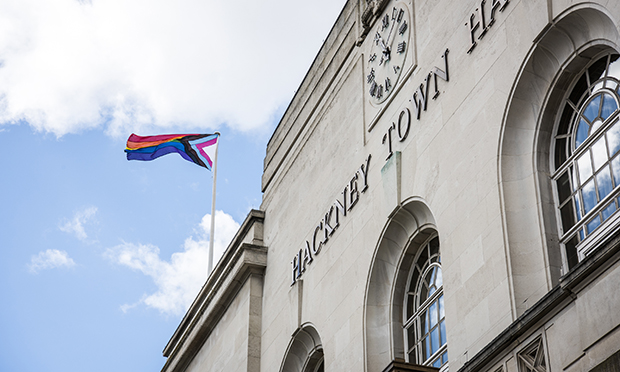Hackney’s top councillors set to discuss finances, air pollution and plans to control dogs

Hackney Town Hall
Councillors on the Town Hall’s top table are expected to discuss the borough’s “challenging” financial position and the renewal of a dog control order at an upcoming meeting.
Hackney’s cabinet will get together on Monday to provide an update on a range of issues, including the council’s budget, the Stamford Hill action plan, and new dog control measures.
Here are details of some of the key issues up for discussion:
Council’s financial situation
The council overspent by around £8.76m across all its services in December.
A Town Hall report said it is in a “very challenging position” that is not, however, “unique”.
“Hackney’s residents also continue to face significant financial pressures as the inflation surge continue,” it states.
The biggest growth in overspend is £450k on children’s and education services.
Other areas of “pressure” were adult social care, climate and homes, and web-based computing costs.
In the year to date, the council has spent £300k on health and safety issues at Seaton Point and Morris Blitz Court – a figure that could rise to £400k, the report warned.
The Town Hall did secure £1.36m in external funding, which will go towards 608 electric vehicle charging points in Blue Badge parking bays.
The council’s budget and council tax for 2024/25 is expected to be decided at a full council meeting on Wednesday.
Stamford Hill Area Action Plan
The cabinet is set to consider a draft plan for the “future of Stamford Hill”.
The strategy is intended to inform a community-led vision for development and planning policies in the neighbourhood.
The draft includes proposals designed to tackle issues relating to housing, such as the lack of family homes and overcrowding.
It also touches on local enterprise and economy, social and community infrastructure, and plans to ensure new developments respect the style of existing buildings.
Public realm ideas include improving walking and cycling, better connectivity and child-friendly environments, and support for green infrastructure.
New order to curb air pollution from wood and coal burning
With solid fuel burning being a “significant contributor to local air pollution”, the cabinet is asked to consider a new, borough-wide smoke control order.
The report states: “The contribution that solid fuel burning makes to concentrations of particulate matter in the local air is significant.
“Therefore, taking action to reduce emissions from this source is a really important step to improving air quality and helping us meet the standards needed to protect public health.”
The proposed order would include moored vessels.
If approved, anyone burning solid fuel in Hackney could face a civil penalty between £175 and £300.
Domestic wood-burning is the second biggest source of fine particles in London, according to the council’s 2019 clean air strategy.
Although complaints to the council about solid fuel burning are “relatively low”, complaints over emissions from moored vessels have grown slightly in recent years, the report noted.
Those dependent on solid fuel burners for heating could receive support and financial assistance where appropriate.
A cap of £2,300 would be set per vessel for upgrading appliances – if the order is approved.
Those affected by the changes can raise objections with the council.
Public Spaces Protection Order (Dog Control)
The cabinet is asked to approve a revised order for dog control designed to place controls on dog fouling, dog exclusion, dogs on leads and the maximum number of dogs in control of one person.
A Public Space Protection Order (PSPO) allows police and community safety enforcement officers to deal with anti-social behaviour and nuisance in public places.
The proposed dog control order follows a consultation with residents.
The top concerns for the almost 4,000 respondents who took part were dog-fouling, dogs being out of control, and feeling threatened by a dog’s behaviour.
The order would make it a criminal offence to fail to pick up dog faeces anywhere in the borough.
It also says that dogs must be kept on a lead at all times in general public areas (excluding towpaths), on roads and car parks, churchyards, burial grounds (excluding Abney Park Cemetery), communal areas on estates and some public parks – a full list of affected places can be found on pages 16 and 17 of the proposal here.
The decision to exclude Abney Park Cemetery follows a backlash from dog owners last year to the consultation.
Failing to keep a dog under proper control and having more than six dogs under the control of one person would also be a criminal offence punishable with a £100 fixed penalty notice or a prosecution.
Assistance dogs accompanying a deaf, blind or a disabled person in official capacity are excluded of the order.
If approved, the order will kick in on 18 March 2024 for the next three years.
Update: this article was amended at 7.40pm on 23 February 2024 to clarify that dogs will not be required to be kept on a lead in all public parks, as was previously implied. We apologise for any confusion.
